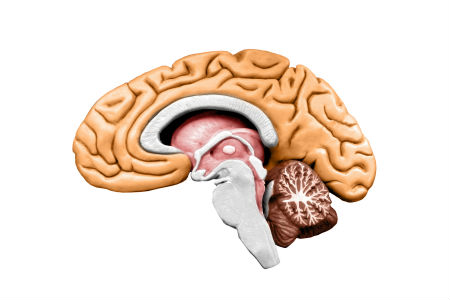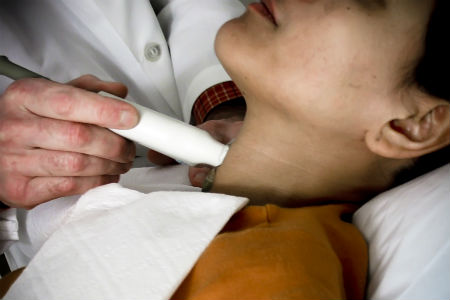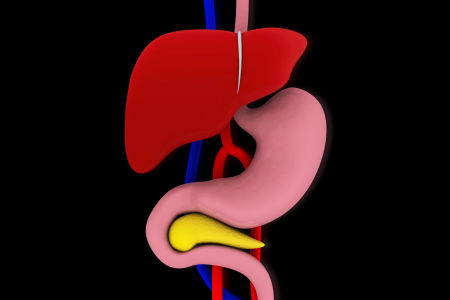The Impact the Endocrine System Has On Hormone Imbalance
0 Comments
1) Your Endocrine Glands and Hormones
The glands and organs of your endocrine system, located throughout your body, secrete and regulate hormones. When everything is functioning well, your health is stronger. However, several factors including age, various diseases, stress, genetics and environmental factors can affect how your endocrine system functions, leading to a hormone imbalance or a number of other health consequences. Sources: Endocrine Glands and Types of Hormones http://www.hormone.org/hormones-and-health/the-endocrine-system/endocrine-glands-and-types-of-hormones PhotoSpin

2) Your Hypothalamus
Your hypothalamus is located above the pituitary gland and brain stem, and below the thalamus, in your brain. Your hypothalamus links your endocrine (hormone) system and your nervous system. Your hypothalamus secretes hormones, which helps regulate hormone production throughout your entire body. Although the gland is small in size, it holds an important role in the endocrine system as it maintains homeostasis, or balance of your body. If there is a problem with your hypothalamus, it is difficult to pinpoint whether other glands are involved because the hypothalamus interacts with them all. Sources: An Overview of the Hypothalamus http://www.endocrineweb.com/endocrinology/overview-hypothalamus PhotoSpin

3) Your Pineal Gland
Your pineal gland is located deep in the center of your brain. It creates melatonin, a hormone that regulates the sleep and wake patterns of your circadian rhythm as well as some reproductive hormones. Melatonin also hinders secretion of gonadotropins, hormones that assist in the development and function of the ovaries and testes. Sources: An Overview of the Pineal Gland http://www.endocrineweb.com/endocrinology/overview-pineal-gland PhotoSpin

4) Your Pituitary Gland
Your pituitary gland is found at the base of your brain, close to the hypothalamus. Hormones in your pituitary aid in the regulation of other endocrine glands by signaling them to either increase or decrease hormone production. When your pituitary gland isn't working properly, a wide assortment of possible problems can emerge. Just a few of the changes that can occur may affect your adrenal gland hormones, fertility, growth, breast milk production, and kidney function. Pituitary tumors can create hormone imbalance in the form of conditions such as hyperthyroidism, or pituitary apoplexy (bleeding inside a non-cancerous tumor). One type of pituitary tumor secretes too much hormone, while the other type does not secrete extra hormone. Sources: An Overview of the Pituitary Gland http://www.endocrineweb.com/endocrinology/overview-pituitary-gland PhotoSpin

5) Your Thyroid Gland
Your thyroid gland is shaped like a butterfly in front of your windpipe and under your larynx or Adam’s apple. This gland regulates your metabolism, which breaks down and converts food into energy for the body, with thyroid hormones T3 (tri-iodothyronine) and T4 (thyroxine). Your hypothalamus and pituitary gland regulate your thyroid and produce more hormones when thyroid hormone levels drop. An imbalance in thyroid hormones can lead to hypothyroidism, hyperthyroidism, nodules or goiters in the thyroid gland, thyroiditis, thyroid cancer, insomnia, weight gain or loss, fatigue, and mood swings. Sources: Thyroid Gland Overview http://www.endocrineweb.com/endocrinology/overview-thyroid PhotoSpin

6) Your Parathyroid Glands
Despite the similarity in their names, there is no great connection between your parathyroid and thyroid glands. Four tiny parathyroid glands, about the size of a grain of rice, keep your nervous system and muscular system in good running condition. They regulate calcium levels by secreting parathyroid hormone. Calcium makes muscles contract and maintain proper electrical current for your nerves. Sources: An Overview of the Parathyroid http://www.endocrineweb.com/endocrinology/overview-parathyroid PhotoSpin

7) Your Thymus
Your thymus gland is located between your lungs, and behind your sternum. Its job is finished by the time you hit puberty. After that, it shrinks and is ultimately replaced with fat. Its lifespan is short, but it is key to the function of your endocrine system, as well as your lymphatic system, which protects against autoimmunity and keeps your immune system healthy. The thymus creates and nurtures T-lymphocytes or T cells, a type of white blood cell, to defend against infections, viruses and other invaders. Sources: An Overview of the Thymus http://www.endocrineweb.com/endocrinology/overview-thymus PhotoSpin

8) Your Adrenal Glands
Your adrenal gland are two glands that sit on top of your kidneys. Adrenals produce two main groups of hormones, glucocorticoids and mineralcorticoids, which are made in two separate areas, the adrenal medulla and the adrenal cortex. The glucocorticoid cortisol (also called hydrocortisone) regulates your metabolism and your body's stress response. It converts carbohydrates, fats and proteins into energy, and controls cardiovascular function and blood pressure. The mineralocorticoid aldosterone, helps keep your blood pressure under control as it regulates levels of water and salt. Corticosterone is another glucocorticoid which helps hydrocortisone to keep your immune response in balance, and decrease inflammatory reactions. Sex hormones or steroids are produced by the adrenal medulla, though in much smaller quantities than the ovaries manufacture. The adrenal medulla also secretes the hormones adrenaline and noradrenaline. Adrenaline, also called epinephrine, increases heart rate and provides extra blood to brain and muscles. Noradrenaline, also known as norepinephrine, helps with your stress response. It can also narrow blood vessels, which can lead to high blood pressure. When your adrenal glands are not working properly, a number of illnesses and disorders, such as Addison’s disease, adrenal cancer, Cushing's disease and congenital adrenal hyperplasia, can arise. Sources: An Overview of the Adrenal Glands http://www.endocrineweb.com/endocrinology/overview-adrenal-glands PhotoSpin

9) Your Pancreas
Your pancreas is connected to your duodenum, which is part of your small intestine, between your spine and stomach. Your pancreas is involved in digestion as well as the production of hormones, such as insulin. It also regulates blood glucose levels. Primary hormones of the pancreas, insulin and glucagon, help to maintain blood glucose balance. When functioning normally, your pancreas prevents diabetes and other complications. When it's not functioning well, many disorders and diseases can occur, such as type 1 and type 2 diabetes, hyperglycemia and hypoglycemia. Sources: An Overview of the Pancreas http://www.endocrineweb.com/endocrinology/overview-pancreas PhotoSpin

10) Your Ovaries
Your ovaries are found in your pelvis on both sides of your uterus. They produce egg cells, and keep your reproductive system healthy. Your ovaries produce hormones, the most important of which are estrogen and progesterone. Estrogen is key to development of your breasts and reproductive organs, and distribution of fat to your breasts, hips and legs. Estrogen and progesterone also regulate menstruation. Depending on whether or not pregnancy occurs following ovulation, the hormones released will either trigger a menstrual period or take care of, nurture and protect a fetus. At the end of your childbearing years, these hormones will monitor menopause, when it will occur, and what symptoms may come with it. Your ovaries' hormones are paramount in determining and carrying out the development of your physiology and your fertility. Diseases that can occur within your ovaries include menstrual cycle disorders, ovarian cancer, ovarian cysts and polycystic ovarian syndrome. Sources: An Overview of the Ovaries http://www.endocrineweb.com/endocrinology/overview-ovaries PhotoSpin
Add a CommentComments
There are no comments yet. Be the first one and get the conversation started!